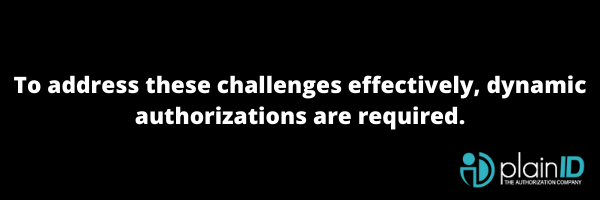In today’s digital landscape, Identity and Access Management, or IAM, is critical for managing who can access what and when for virtually any type of organization. Perhaps nowhere, however, is IAM more important than in the healthcare industry.
Healthcare organizations face unique challenges that only policy based access control (PBAC) can address at scale. From complex compliance requirements, to persistent cybersecurity threats, to the need to share medical records securely with patients, healthcare providers need dynamic and fine-grained access control solutions.
These challenges are not exactly new of course, and many healthcare organizations already have some kind of IAM system in place. But those solutions are often not holistic enough to enable the type of scalable, end-to-end access control that drives success for modern healthcare organizations.
For these organizations, policy based access control offers a solution that streamlines access control for healthcare data and makes it easy to align technical controls with business requirements.
Here’s how PBAC helps healthcare organizations achieve a greater level of mastery over their data than conventional IAM can provide.
While organizations in every industry need to manage access and authorizations, healthcare organizations face challenges on this front that are especially intense:
“There were 51% more cyberattacks on the healthcare industry in 2020 compared with 2019” according to Bitglass.

Dynamic authorizations that are controlled by a centralized Policy Based Access Control (PBAC) solution that enables governance, management, and enforcement of the right controls at the right time.
PlainID’s policy based access control solution solves these challenges by providing a holistic, dynamic, fine-grained access management system.
In short, healthcare organizations have long struggled to manage data efficiently and securely. Those challenges will only become more intense as compliance rules grow in complexity, security threats against healthcare organizations increase and they face greater pressure to utilize the data they collect for research.
PlainID offers a solution for dynamic authorizations in the form of its Policy Manager product, making it easy for stakeholders to set meaningful and efficient access control policies. Learn more by requesting a demo of the PlainID platform.